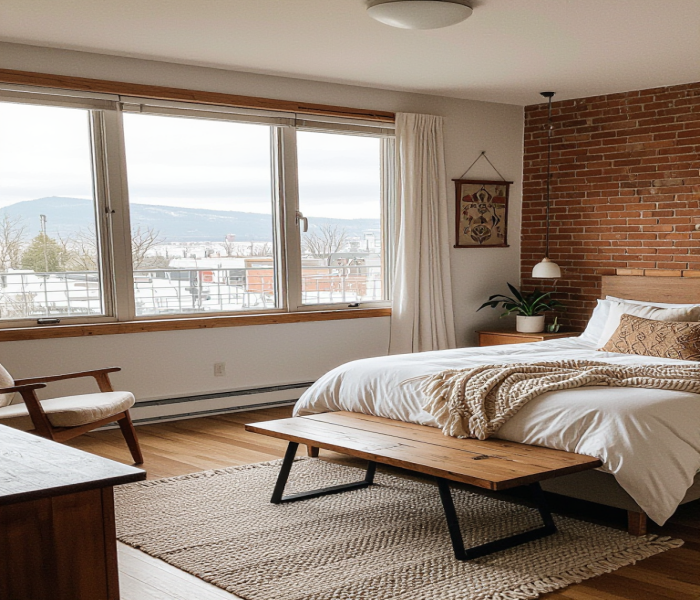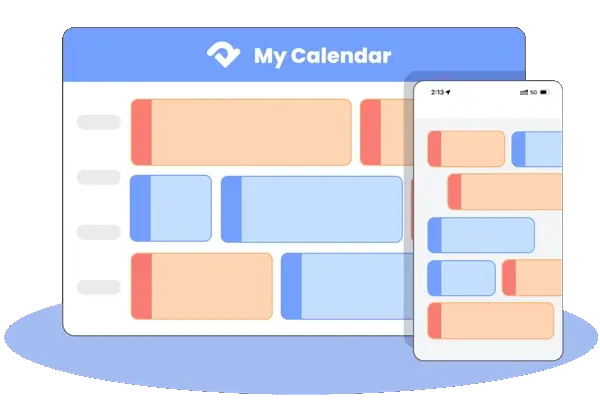Even if you have no prior property management experience, launching your own Airbnb business is entirely feasible. With the right strategy, you can transform your home into a sought-after short-term rental that attracts travelers worldwide. This guide will walk you through every step of building your Airbnb journey from the ground up.
❓ Why Start an Airbnb Business
- Access to a Global Audience: Airbnb connects you to a vast community of travelers worldwide, eliminating the need to build a customer base from scratch.
- Monetize Unused Space: Turn a spare room, vacation home, or investment property into a steady source of income.
- Flexibility and Control: Set your own rental schedule, pricing, and house rules, allowing you to manage the business at your own pace.
- Diverse Opportunities: Whether you’re looking to boost your income or explore a new entrepreneurial path, Airbnb fits various goals.
🔍 Pre-Launch: Preparing to Host
1. Evaluate Your Space and Define Goals
- Assess Your Property Through Guests’ Eyes: Location matters—proximity to public transit, restaurants, or tourist attractions adds value. Even quieter areas work if they’re safe and easily accessible.
- Clarify Your Objectives: Are you aiming for extra spending money or a primary income stream? Identify your target guests: Families may prioritize yards and kid-friendly amenities, while business travelers need reliable Wi-Fi and workspaces. Tailoring your space to your audience boosts appeal.
- Plan Your Budget: Startup costs include furniture, linens, cleaning supplies, and possibly a smart lock for self-check-in. Set aside funds for unexpected repairs (e.g., a leaky faucet or broken appliance).
2. Understand the Rules (Critical Step)
- Local Regulations: Short-term rental laws vary by city. Some require permits; others limit annual rental days. Check your local government’s website or contact their office to avoid fines.
- Lease and HOA Restrictions: If you rent your property, review your lease—many landlords prohibit subletting on Airbnb. Homeowners associations (HOAs) may also restrict short-term guests, so verify their rules.
- Insurance Coverage: Airbnb offers a Host Guarantee, but it may not cover all risks. Invest in a comprehensive insurance policy to protect against damage, theft, or natural disasters.
3. Prepare Your Space for Guests
Make It Comfortable and Functional
- Essentials First: Guests prioritize comfort. Invest in a quality mattress, clean bedding, ample pillows, and basic kitchen tools (pots, utensils). Provide storage so guests don’t live out of suitcases.
- Thoughtful Touches: Small details like fresh flowers, a handwritten welcome note, or a local guidebook leave a lasting impression. Keep decor minimal to avoid clutter.
- Safety Measures: Install smoke detectors, add handrails if needed, and secure doors/windows. Lock away personal valuables to protect your belongings.
Stock Essentials (and Extras)
- Basics: Toilet paper, soap, and towels are non-negotiable.
- Extras: Go the extra mile with travel-sized toiletries, a coffee maker, or a snack basket. Free Wi-Fi is a must, and streaming services (e.g., Netflix) are a nice bonus.
- Convenience Items: Include a hairdryer, phone chargers, or umbrellas. Local maps or restaurant recommendations help guests feel at home.
| Category | Must-Haves | Nice-to-Haves |
|---|---|---|
| Comfort | Quality mattress, blackout curtains | Welcome basket, local guidebook |
| Functionality | Strong Wi-Fi, basic kitchen tools | Streaming services, USB outlets |
| Safety | Smoke detectors, first-aid kit, secure locks | Emergency exit map |
| Essentials | Toilet paper, towels, soap | Coffee station, phone chargers |
✨ Create a Standout Listing
1. Craft a Compelling Title and Description
- Title: Be specific and enticing. “Cozy Loft Near Downtown with Balcony” works better than “Nice Apartment.”
- Description: Focus on benefits, not just features. For example, “Cook homemade meals in a fully equipped kitchen” is more inviting than “Has a kitchen.” Be honest, friendly, and clear—mention nearby attractions and avoid overhyping.
2. Take Great Photos
- Good photos drive bookings. Use natural light to capture clear shots of every room, highlighting unique features like a balcony or reading nook. Avoid misleading filters. Hire a pro or ask a skilled friend for help if possible.
3. Set Pricing and Availability
- Research similar local listings to set a competitive starting price. Use Airbnb’s Smart Pricing tool to adjust rates based on demand.
- Choose a minimum stay length: Short stays fill gaps, while longer stays reduce turnover. Block dates for personal use in advance.
4. Write Clear House Rules
- Keep rules simple and reasonable: “No smoking,” “Quiet hours after 10 PM,” and “Clean up after cooking.” Include practical info like check-in times, Wi-Fi passwords, and parking details. Clear rules prevent misunderstandings.
👋 Launch Your Listing and Welcome Guests
1. Go Live and Start Booking
- Once your listing is ready, hit “publish.” Choose “Instant Book” to let guests book immediately (attracts more bookings) or “Request to Book” to screen guests first.
- Send a friendly confirmation message with check-in details (e.g., key location), Wi-Fi info, and your contact number. Warmth builds trust.
"Hi [Name]!
Room Passcode: 1234.
Parking: Spot #7.
Wi-Fi: Net1234/ Pass: hello2025.
Need help? Call me at 1234!"
2. Communicate Effectively with Guests
- Respond to questions promptly (Airbnb rewards faster response times). Even small queries—like “Is parking available?”—deserve helpful answers. Share local tips (e.g., your favorite cafe) to add value.
- Check-in politely once during their stay (e.g., “Everything going smoothly?”) but give guests space to enjoy their trip.
3. Simplify Check-In and Check-Out
- Check-In: Self-check-in (via keypad or lockbox) is popular—it lets guests arrive on their schedule. If greeting in person, be on time and give a quick tour: show towel locations, thermostat use, and trash disposal.
- Check-Out: Keep it easy. Ask guests to strip beds, take out trash, and lock up. Deep cleaning is your (or your cleaner’s) responsibility.
📈 Keep Guests Satisfied and Grow Your Business
1. Prioritize Cleaning and Repairs
- A clean space is non-negotiable. Hire a reliable cleaner if needed to ensure fresh linens, wiped surfaces, and vacuumed floors. Do a pre-check before new guests arrive to fix small issues (e.g., burnt-out bulbs, empty soap dispensers).
- Address problems quickly: If a guest reports a broken AC, call a repair service the same day. Ignoring issues leads to bad reviews.
2. Encourage and Respond to Reviews
- Reviews are critical for visibility. After a stay, send a polite request: “Hope you enjoyed your stay! A review would help us improve—thank you!”
- Respond to all reviews: Thank happy guests (“Glad you loved the balcony views!”). For negative feedback, stay calm. Example: “Thanks for letting us know about the street noise—we’ll add earplugs for future guests.” This shows you care.
3. Aim for Superhost Status
- Airbnb’s Superhost program recognizes hosts with great reviews, fast responses, and low cancellation rates. Superhosts get better search placement and more bookings—use your dashboard to track progress and improve.
• 4.8+ avg. rating
• <1% cancellation rate
• 90%+ response rate
4. Expand Your Business
- Once comfortable, consider growth: Add a second property or offer extras like airport pickups or guided tours. Use Airbnb’s analytics to refine your strategy—e.g., if guests love your patio, add outdoor furniture.
🛠 Troubleshoot Common Issues
| Issue | Solution |
|---|---|
| Last-minute cancellation | Enforce strict cancellation policy |
| Rule violation (e.g., noise) | Politely remind: "Quiet hours start at 10 PM :)" |
| Low season bookings | Run "Weekend Deal" discounts or target locals |
💡 Final Thoughts
Starting an Airbnb business with no experience is achievable. It requires effort—researching rules, prepping your space, and learning to host—but the rewards are significant. Focus on guest satisfaction: make them feel welcome, respond quickly, and keep your space clean.
Every host starts somewhere. Your first booking might feel daunting, but with time, you’ll master the process. As you learn, you’ll create a space guests love—and a business that works for you.

